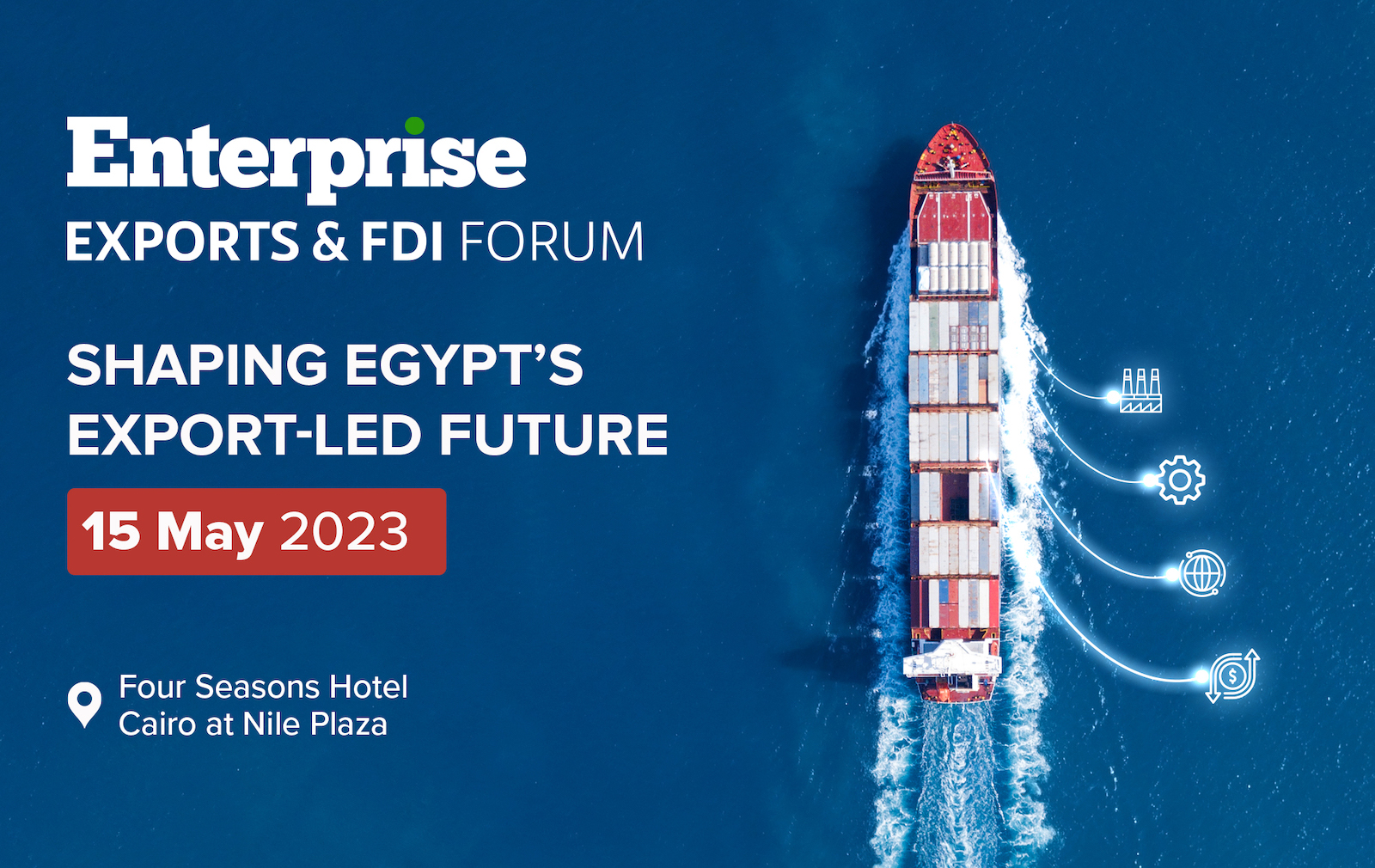- UAE’s Tadweer inks agreement with France’s Sulo on waste management. (Waste Management)
- Government-led AI initiatives are supporting climate change mitigation and adaptation regionally. (Climate Tech)
- France will attempt to rally a pro-nuclear EU alliance today. (What We’re Tracking Today)
- The EU has backtracked on its outrage over Biden’s landmark climate bill. (What We’re Tracking Today)
- Falling wind speeds could require a rethink in renewables infrastructure strategy. (Danger Zone)
- Fancy some shrimp? They’re wearable fashion now. (On Your Way Out)

Tuesday, 28 February 2023
UAE’s Tadweer inks agreement with France’s Sulo on waste management
TL;DR
WHAT WE’RE TRACKING TODAY

Good morning, lovely people, it’s a light issue on the regional climate news front but there’s quite a few international updates to catch up on. Let’s dive in.
THE BIG CLIMATE STORY- Regional news is at a standstill this morning, but one blip on the radar comes out of UAE where Abu Dhabi Waste Management Company (Tadweer) signed a partnership agreement with France’s Sulo to establish an integrated waste management network in Abu Dhabi. We have all the details in the news well, below.
THE BIG CLIMATE STORY OUTSIDE THE REGION- Climate activist Greta Thunberg is making headlines again after blocking the doors to Norway’s energy ministry, accusing the country of “green colonialism” over plans for a mega wind farm built on indigenous lands. Thunberg and dozens of climate activists from Norway’s Sami community staged a protest in front of Norway’s energy ministry in Oslo yesterday, demonstrating against plans to construct the 1 GW wind project. (AFP | Reuters | Financial Times | Washington Post)
HAPPENING TODAY- The Sustainable Aviation Futures MENA Congress is taking place today in Dubai. The event will bring together some 40 speakers from a range of organizations including airlines, aviation authorities, clean energy startups and banks. Panels will discuss regional airline sustainability strategies, prospects for commercial collaboration, and aviation-focused decarbonization incentives.
WATCH THIS SPACE #1: France is eyeing a pro-nuclear EU alliance: France will attempt to rally support for the inclusion of nuclear power as a low carbon energy source in EU policies in a meeting with 12 other EU countries today, ahead of further EU negotiations, Reuters reports. The meeting will take place on the sidelines of an EU ministerial gathering in Stockholm, where French energy minister Agnes Pannier-Runache is set to make the case once again for nuclear energy to be counted towards the EU’s energy security and clean power generational targets, the news outlet notes.
EU countries remain divided on the role of nuclear energy: Debate over whether nuclear-derived hydrogen should be allowed to count towards the EU’s renewable energy generation targets has delayed the finalizing of a text outlining the EU’s diplomatic priorities ahead of COP28 — which was supposed to be agreed on by member countries on last week.
WATCH THIS SPACE #2- The EU is shifting its worries away from US climate subsidies…: Recent assessments ranking EU incentives for clean energy production as equal to or even exceeding benefits from US President Joe Biden’s Inflation Reduction Act (IRA) are assuaging Europe’s anger over the landmark climate bill — which has been the source of heated debate in recent months — Bloomberg reported earlier this week. The IRA’s offering of roughly USD 369 bn in subsidies for clean energy programs in the coming decade had prompted several EU leaders to accuse the US of trying to lure green investment away from Europe. The amount of funding for climate-friendly initiatives put forward by the EU “is at least comparable to the amount of money that the Americans are putting on the table,” EU climate policy chief Frans Timmermans said recently.
…and onto China: Heavy reliance in Europe on Chinese imports for renewables production — including solar panels and batteries — still leaves the bloc vulnerable, while the US is more likely to create its own domestic supply chain, Bloomberg quotes Bruegel think tank representative Alicia Garcia-Herrero as saying. Europe should look at closer collaboration with the US to help mitigate this risk, Garcia-Herrero added.
WATCH THIS SPACE #3- There’s a new ESG bond in town, says the World Bank, and it’s “immune” to greenwashing: The World Bank has raised USD 50 mn through an outcome-based bond linked to voluntary carbon credits — a structure it terms “immune from any greenwashing concern,” Bloomberg reported last week. The five-year bond is set to offer a return some 100 bps above what a typical World Bank bond would offer, and will be used to fund a project to manufacture 300k water purifiers in Vietnam to reduce emissions associated with burning wood to boil (and purify) water.
How does it work? Instead of regular coupon payments, investors will receive semi-annual coupons linked to verified carbon units generated through the project. “We’re completely transparent where the foregone coupon is going, what the risk is and what the outcome measurement metric is,” a World Bank representative said. Normal green bonds, on the other hand, would enable issuers to allocate proceeds to multiple projects.
The new structure will help finance projects that wouldn’t normally attract bond market funding, Bloomberg quotes a World Bank representative as saying, adding that large global asset managers are already showing interest in the new structure. The World Bank is already planning at least one other issuance of the same type this year — possibly of a larger size, Bloomberg added.
|
***
YOU’RE READING ENTERPRISE CLIMATE, the essential MENA publication for senior execs who care about the world’s most important industry. We’re out Monday through Thursday at 4am Cairo / 5am Riyadh / 6am UAE.
Were you forwarded this email? Get your own subscription without charge here or reach out to us on climate@enterprisemea.com with comments, suggestions and story tips.
***
THE DANGER ZONE- Falling wind speeds could require a rethink in renewables infrastructure strategy: Climate change could be causing a notable reduction in annual average wind speeds — which could be on track to fall by up to 10% by 2100, according to the Intergovernmental Panel on Climate Change, the Financial Times noted in a recent video (watch, runtime: 03:00). This could prompt the need for a rethink of renewables infrastructure planning to prevent existing or planned wind power resources from becoming stranded assets.
What’s happening, in a nutshell? The larger the temperature difference between the poles and the tropics, the stronger the speed of global winds. The Arctic appears to have warmed faster than the rest of the world since 1979 — and as its temperature difference with the equator has narrowed, wind speeds have fallen, the FT notes. Proposed measures include increased investment in floating wind turbines — which can be anchored in deep sea waters, where wind is stronger.
COME TO OUR NEXT ENTERPRISE FORUM-
We are delighted to share with you that the Enterprise Exports & FDI Forum will be taking place on 15 May at the Four Seasons Hotel at Nile Plaza in Cairo.
DO YOU WANT TO ATTEND? The first wave of invites is going out soon. If you’re a C-suite exec, exporter, investor, official, banker, or someone who should be part of the conversation, please click here to request a spot at this exclusive event.
What’s the Enterprise Exports & FDI Forum? It is the latest in our series of must-attend, invitation-only gatherings for C-suite-level business leaders. The Enterprise Exports & FDI Forum will discuss the critical topics of exports and foreign direct investment (FDI) in Egypt.
We will be taking an in-depth look into some of the most vital industry topics, including:
- How to effectively break into new export markets
- How to leverage domestic trends in order to create export opportunities
- What foreign investors are looking for
- What the government’s role should be
Why now? Exports and foreign direct investment (FDI) have never been more important to Egypt’s economy — or businesses — than in the wake of the float of the EGP. We think we have a once-in-a-lifetime chance to build an export-led economy that makes Egypt a magnet for FDI, and all the benefits that will come with it.
Think of the Enterprise Exports & FDI Forum as a hands-on lab for how to turn the devaluation of the EGP into something that will turbocharge your company and our economy.
Who’s on board? Some of the biggest names in business and finance are on board — are you? If you’d like to partner with us on the conference, ping a note to Moustafa Taalab, our head of commercial, here.
CIRCLE YOUR CALENDAR-
Egypt will host the CSR Forum from Thursday, 2 March to Sunday, 5 March in Somabay, Hurghada. The event aims to further discussions put forth during COP27 and boost private and public sector cooperation on climate action. You can register for the event here.
Qatar will host the Earthna Summit from Wednesday, 8 March to Thursday, 9 March in Doha. The event will bring together industry leaders and policymakers to explore tailored solutions for the energy transition in hot climates. You can register for the event here.
The Arabia CSR Awards is accepting applications until Friday, 30 June. The awardwinners will be announced during a ceremony on Wednesday, 4 October.
The first MENA Solar Conference is accepting applications from published researchers specialized in PV technology until Sunday, 30 April. The Dubai Electricity and Water Authority will be hosting the conference from 15 to 18 November, in conjunction with the Water, Energy, Technology, and Environment Exhibition and the Dubai Solar Show 2023. Researchers can submit their papers here.
Check out our full calendar on the web for a comprehensive listing of upcoming news events, national holidays and news triggers.
WASTE MANAGEMENT
Tadweer partners with France’s Sulo to boost waste management efforts in Abu Dhabi

UAE’s Tadweer + France’s Sulo to work on waste management: The Abu Dhabi Waste Management Company (Tadweer) signed a partnership agreement with France’s Sulo to establish an integrated waste management network in Abu Dhabi, Wam reports. The timeframe and financials of the partnership agreement were not disclosed.
Details: Sulo and Tadweer will explore the possibility of using recycled waste in manufacturing, and establishing unified pre-waste collection systems in other parts of the UAE and MENA, the news agency notes.
Tadweer has been on a roll lately: Tadweer inked five agreements with UAE-based firms in the fields of waste management and transport in Al Ain and Abu Dhabi totaling c.USD 545 mn in January. The company also recently announced plans to conduct feasibility studies in partnership with Masdar, Adnoc, Emirates Airways, and BP on the production of sustainable aviation fuels (SAFs) by using solid waste and renewable hydrogen, and in February, signed an MoU with US-based carbon recycling company LanzaTech to explore the possibility of establishing a waste to sustainable aviation fuels conversion plant.
CLIMATE TECH
Government-led AI initiatives are supporting climate change mitigation and adaptation regionally
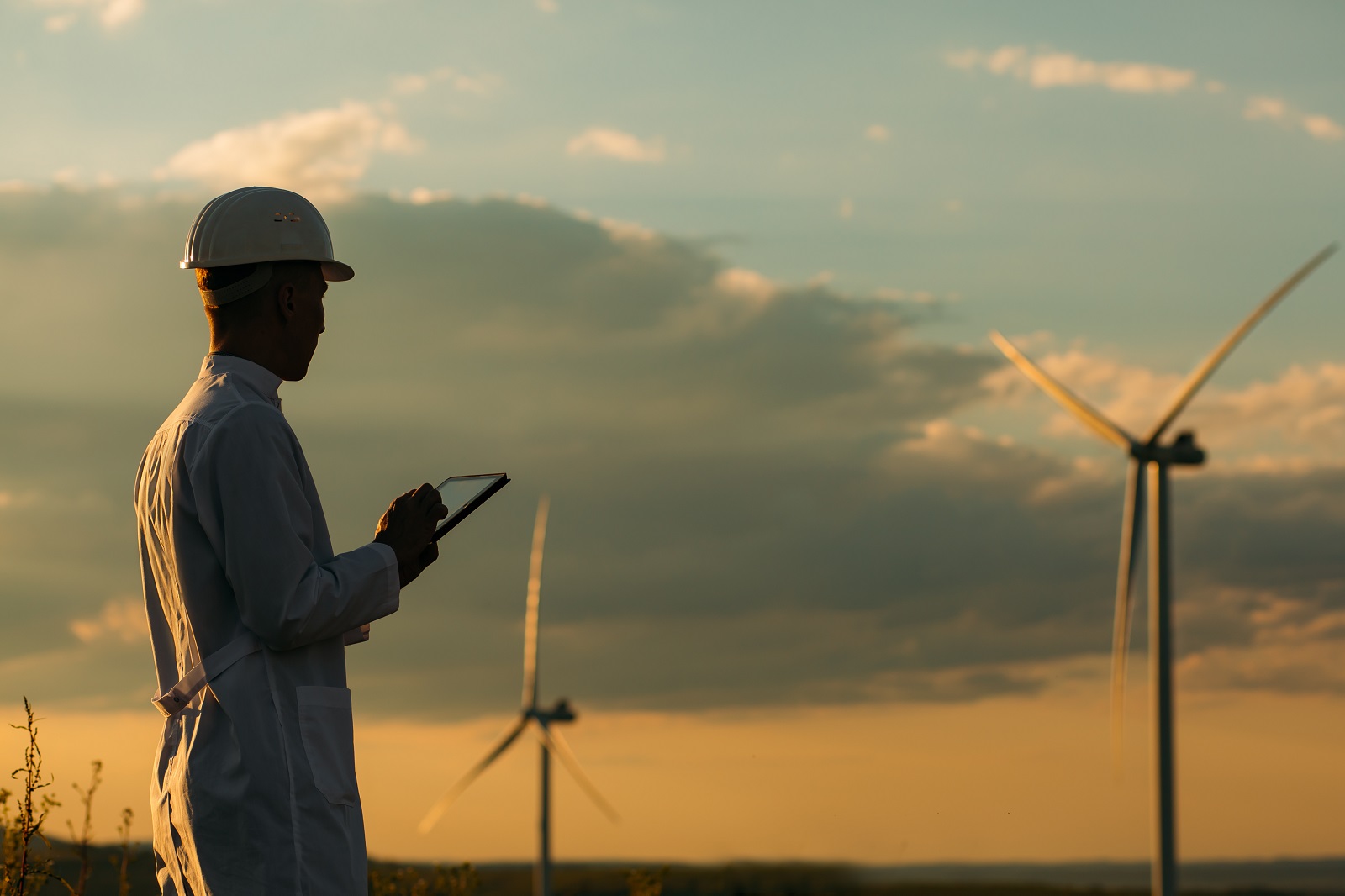
MENA is set to capitalize on AI systems in transport, renewable energy and agritech, contributing over 6% to the region’s energy GDP by 2030, a report by Google and the Economist found. The Economist Intelligence Unit estimated in 2019 that Saudi Arabia and the UAE alone could add USD 200 bn and USD 122 bn to their economies from value added by AI by 2030, while the Google-Economist report says MENA stands to gain USD 320 bn within the same timeframe. Value added by AI is largely realized by automation-driven cost savings and product and service improvement.
AI’s role in the climate sphere: AI can be used to monitor, predict, forecast, design and optimize climate impacts and solutions, which can help businesses and governments measure the environmental footprint of products and policies.
How does it work? By using real-time data and near-real-time analytics, AI can be used to monitor the environmental impact of products, business, policies, and events, whether through satellite observation or smart micro-solutions like smart metering. The UN Environmental Program’s (UNEP) World Environment Situation Room, for example, uses AI to analyze datasets and generate predictive forecasts to track CO2 and methane emissions, provide near-real-time insights on the impact of air quality for health protection measures, as well as predict sea level rise and changes in glacier mass.
GCC has ambitious AI strategies: In 2017, the UAE published its AI strategy (pdf) — and appointed a minister of state for artificial intelligence — with the aim of making the country one of the world’s leaders in AI by 2031. Saudi Arabia launched the National Strategy for Data and AI (pdf) in 2020, which includes KPIs that aim to place the kingdom in the top 15 globally when it comes to AI, with a focus on governance, healthcare, energy and mobility. More recently in 2021, Qatar published its AI strategy (pdf) prioritizing transportation, food security, and improving efficiency in oil and gas processes to reduce downtime and pollution.
And MENA isn’t far behind: Egypt formed the National Council for Artificial Intelligence (NCAI) in 2019 and unveiled its AI strategy (pdf), which includes using AI for agriculture, water management and environment, manufacturing and smart infrastructure management. Oman, which published its AI strategy in 2020, includes among its target areas urban planning and smart cities, agriculture, energy, as well as plans to transform the city of Duqm into a smart city.
AI climate investments are on the rise: Neom — which partnered with Oracle and NVIDIA in AI technology at LEAP23 earlier this month — is incorporating AI and advanced robotics into its DNA, including promises of a fully autonomous transportation system for the smart city. Last year, Saudi’s Ministry of Environment, Water and Agriculture, and the Saudi Data and Artificial Intelligence Authority partnered up with the Google Cloud Platform for Cloud Computing and the Climate Engine Foundation for climate research to launch a scientific program for Earth foresight, which uses AI to address environmental preservation, pollution control, sustainable agriculture, climate and nature protection, and water and food security.
Transport AI systems are the regional frontrunners: Transport AI systems are forecast to contribute some 15% to the GDPs of the GCC and Egypt by 2030, according to the Google-Economist report. This includes predictive transport management and traffic safety as well as autonomous vehicles. As electric vehicle adoption increases, AI is increasingly being used to monitor and predict demand and usage of charging terminals, optimize battery usage and improve safety and efficiency. Dubai’s Roads and Transport Authority (RTA) is using AI to improve its public bus service by shortening journeys, reducing fuel consumption and increasing bus ridership using big data gathered from smart cards, buses and taxis. It is also being used in the aviation industry, with Etihad signing an agreement last year to begin using AI to measure and benchmark its environmental footprint.
And contributions by the energy sector are picking up speed: AI systems are forecast to contribute more than 6% to the region’s energy GDP by 2030, according to the report. This includes using AI technologies to improve energy management and efficiency, forecast energy demand, achieve renewable energy targets, refitting electricity grids, monitor grid stability, optimize energy usage and reduce system losses and carbon emissions. In much of the GCC, the infrastructure needed to employ AI has been installed, with examples including in Saudi Arabia, Dubai, Abu Dhabi, Bahrain, Oman, Qatar and Kuwait. Meters — paired with IoT, Big Data and AI — will improve energy efficiency and energy needs forecasting, as well as help to identify weaknesses in the energy systems. Critically, AI can aid in the decentralization and optimization of renewable energy as utilities shift to a regulatory role, shifting excess electricity to parts of the grid where energy is needed and detecting surpluses.
State-owned oil and gas companies in the GCC are only hopping on the bandwagon: Oil and gas companies are increasingly investing in AI to optimize operations, reduce risks and costs, minimize their environmental footprint and monitor greenhouse gas emissions. Oil giant Aramco signed an MoU with King Abdullah University of Science and Technology last April for a research center advancing AI technology, and in 2021, Aramco partnered up with the UK-based Aveva to use digital technologies including AI to drive sustainability. In 2019, Aramco established the 4IR Center, an AI center that includes in its scope using AI to reduce the carbon footprint of fossil fuel extraction and deployment. In the UAE in 2020, Adnoc and Abu Dhabi-based AI and cloud computing company Group 42 launched a joint venture company named AIQ to develop AI applications for global oil and gas.
** In Part Two: We’ll take a look at how startups and the private sector are using AI for climate mitigation and adaptation in MENA.
CLIMATE IN THE NEWS
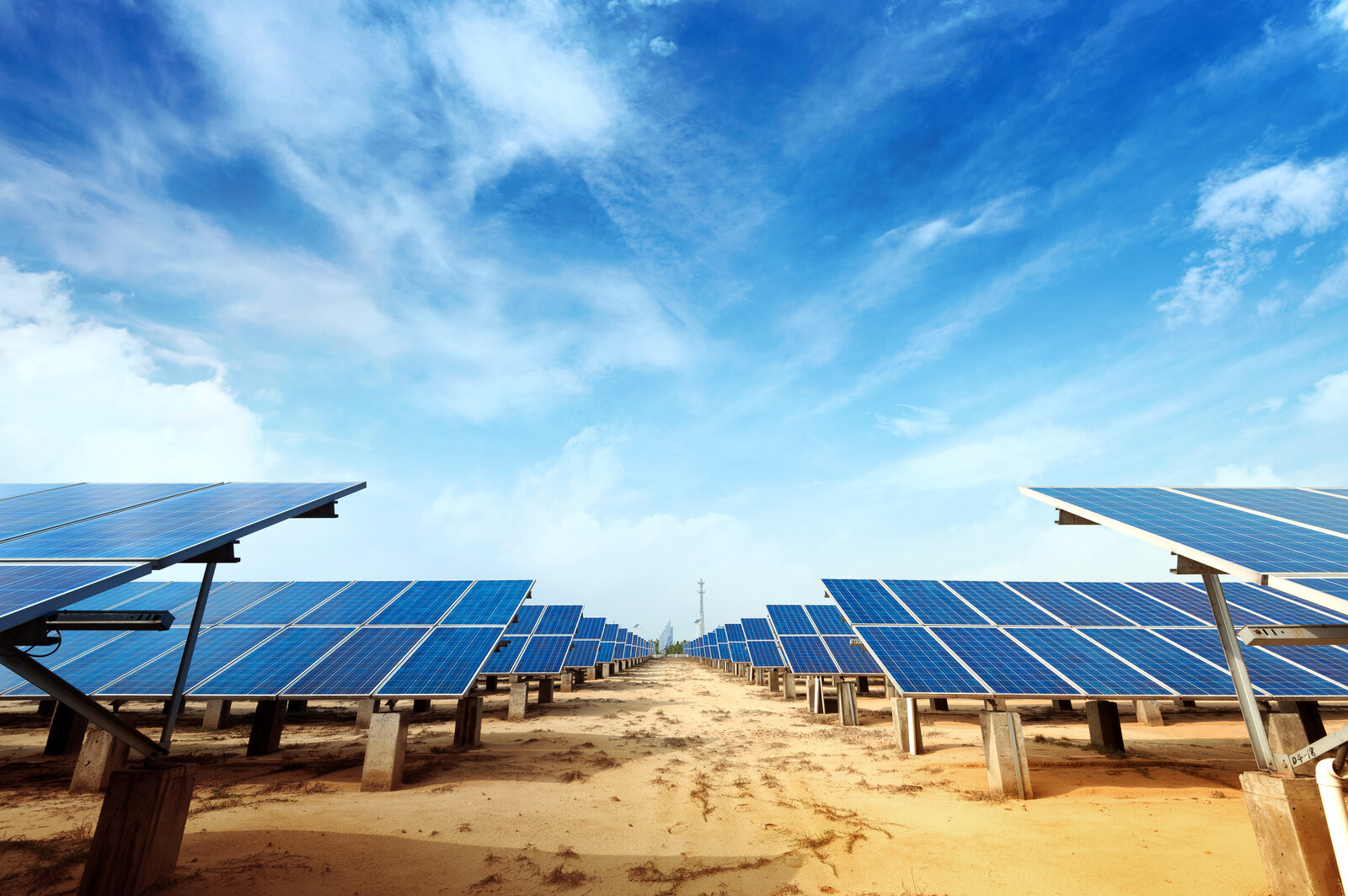
Solar power is currently on track to exceed the generation capacity of all other power sources within four years, the Financial Times reports, citing the International Energy Agency (IEA). The renewable energy source has risen rapidly from the less than 1% share it held 10 years ago and is set to further accelerate, with solar accounting for nearly 60% of every power installation to be built in the next five years, IEA senior analyst Heymi Bahar is quoted as saying.
What’s been driving this meteoric rise? Falling costs and new emissions targets: Solar costs have plummeted over the last decade, the FT notes. The average unsubsidized lifetime cost to build and operate utility-scale solar in 2021 was USD 36/ megawatt hour (MWh), compared to USD 108/MWh for coal, USD 60/MWh for gas, and USD 38/MWh for wind, according to Lazard. For solar, this represents a 90% decrease in cost since 2009, the FT notes. Ambitious global climate targets and policies — many accompanied by subsidies — have also contributed to solar uptake.
OTHER STORIES WORTH KNOWING ABOUT THIS MORNING-
- China’s crackdown on lithium mining in the province of Jiangxi over alleged environmental violations has shut down production hubs that account for nearly a tenth of global supplies. (Bloomberg)
- The asset management industry has “a biodiversity blind spot” when it comes to environmental, social and governance (ESG) risks, according to responsible investment non-profit ShareAction. Only 10% of the asset managers surveyed had a dedicated biodiversity policy covering all portfolios— one of several indications that the majority of global asset managers are still not investing responsibly. (ShareAction)
- New offshore wind projects could be under threat thanks to a shortage of the large boats capable of lifting and installing wind turbine foundations on the ocean floor. China could start to feel the impact of this as early as 2024, with the rest of the world set to see delays starting in 2027. (Bloomberg)
ALSO ON OUR RADAR
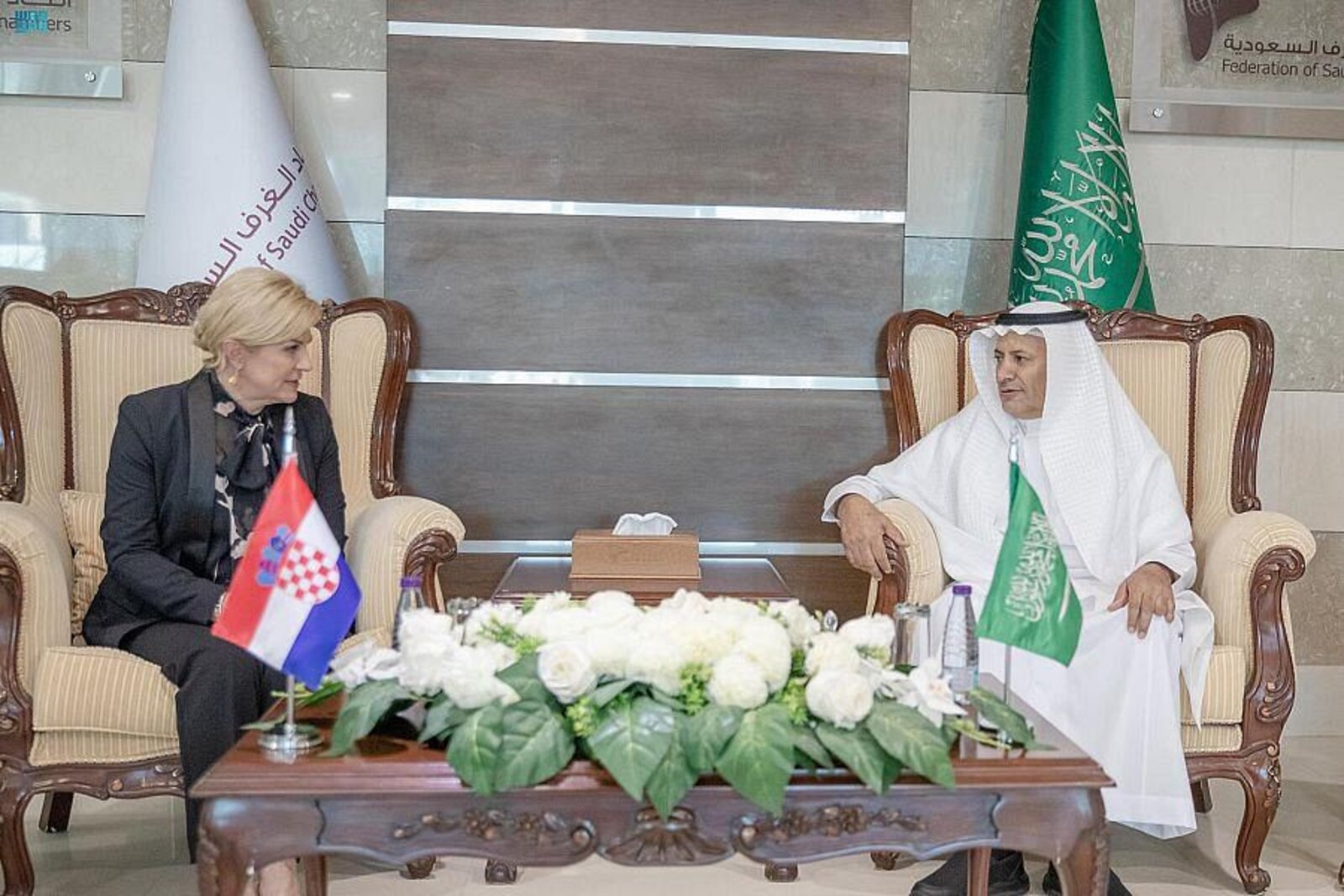
KSA + Croatia eye renewables cooperation: Saudi Arabia and Croatia have agreed in principle to set up a joint business council to boost economic cooperation — with renewable energy being a key area for prospective partnership, according to the Saudi Press Agency. The joint business council would be set up under the Saudi Chambers, the statement adds. The decision followed a meeting between a delegation led by Croatia's former President Kolinda Grabar-Kitarović and representatives of KSA’s business community in Riyadh on Sunday, the statement notes.
Abu Dhabi Distribution Company — a subsidiary of Abu Dhabi National Energy Company (Taqa) — signed an agreement with electronics retailer Sharaf DG to support the latter in its efforts to promote energy-efficient products in its Abu Dhabi stores, according to Zawya.
Chinese auto firm Dongfeng’s E70 500 Pro electric vehicles are now being sold in Egypt courtesy of distributor Misr Helwan Automotive, Enterprise reported on Sunday. According to Dongfeng, the E70 600 Pro — priced at EGP 897k — saves owners some EGP 200k-250k per 100k km on lower fuel and maintenance costs. It is the only model currently being sold in Egypt. Misr Helwan Automotive has begun construction on EV charging stations in Greater Cairo.
AROUND THE WORLD
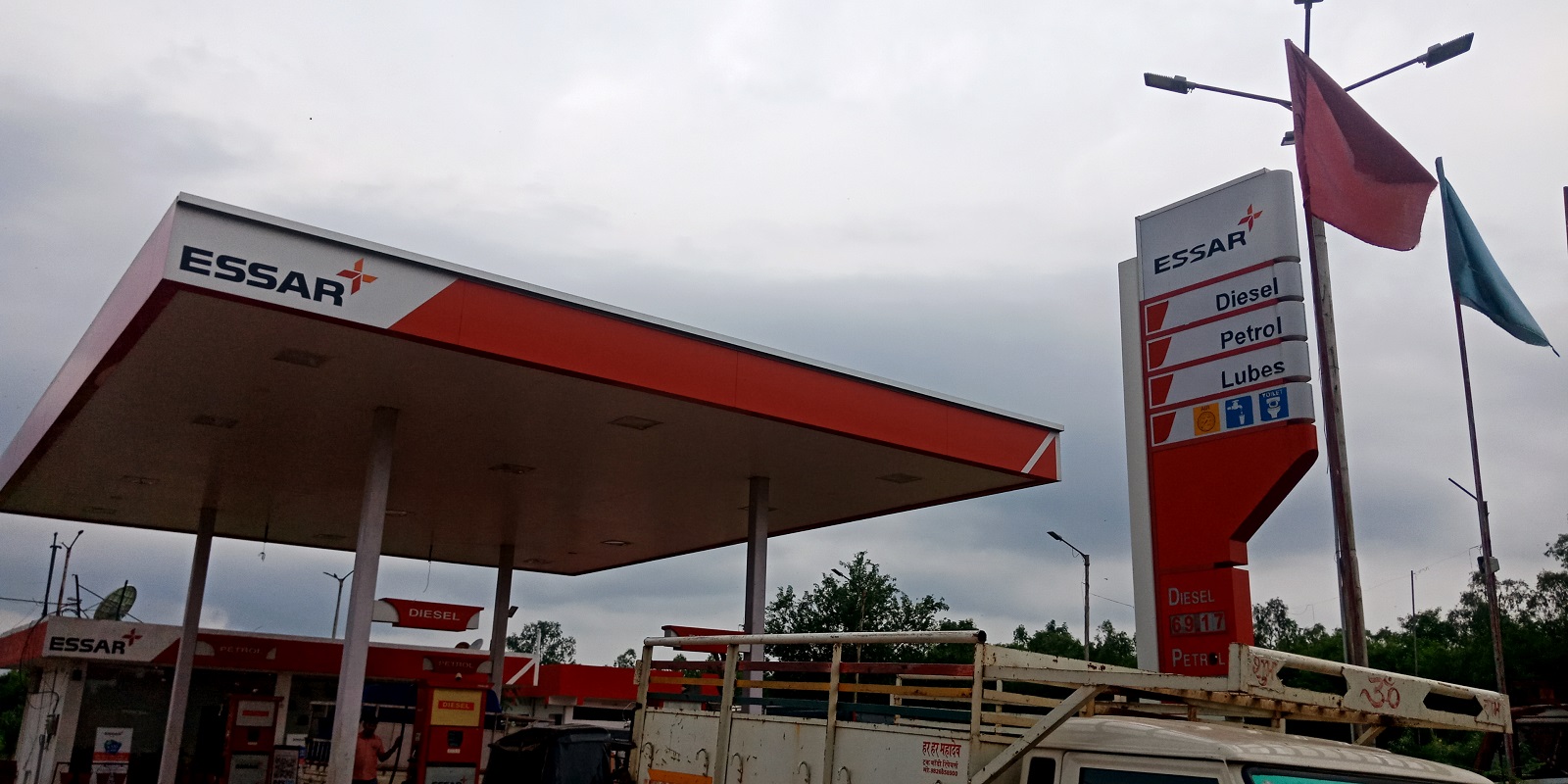
Indian multinational conglomerate Essar Group plans to spend up to USD 3.6 bn on hydrogen production and decarbonization in India and the UK, Bloomberg reports. In an initial phase, the company plans to invest USD 1.2 bn in blue hydrogen production at its Stanlow refinery in northwest England, with a final investment decision expected later this year, Prashant Ruia, director of one of the group’s subsidiaries, told Bloomberg. Later down the road, the company aims to invest in reducing emissions at the refinery and producing green ammonia for export to the UK and Europe. The refinery is linked to a project that’s eligible for UK government funding for carbon capture and storage. If the UK finalizes a market framework later this year, as expected, Essar Group could potentially get the blue hydrogen project up and running by 2027, Ruia told Bloomberg.
South Korea’s SK Signet poised for growth in the US: South Korean EV charging infrastructure firm SK Signet says the planned rollout of its 400 KW ultrafast EV charger in the US will lead to exponential growth across the market, Signet CEO Shin Jung-ho said in an interview with South Korean News Agency Yonhap. Already a supplier of US-based EV charging networks Electrify America and EVgo, the company’s manufacturing plant in Texas is set to become commercially operational in June producing 10k units of Signet’s V2 chargers annually.
Part of global expansion plans: The company secured its first production contract in the UK earlier this month, signing a EUR 7.6 mn agreement through its European subsidiary SK Signet Europe. There are expansion plans to enter four other countries across the continent including Germany, and France, according to a company statement.
OTHER STORIES WORTH KNOWING ABOUT THIS MORNING-
- Nissan expects its global share of EV sales will reach 55% by 2030, with hybrid vehicles and EVs projected to make up as much as 98% of its sales in Europe in 2026, up 13% from a previous company estimate. (Statement)
- Sri Lanka’s Board of Investment gave the green light for Adani Green Energy to develop two 350 MW wind energy plants in the country worth USD 442 mn. The wind farms are set to be commissioned in 2025. (Reuters)
- Several European wind turbine manufacturers — including Denmark’s Vestas — are in preliminary talks with the Vietnamese government to establish turbine production plants in the country. (Reuters)
- Italy’s oil giant Eni made record net profits totalling EUR 13.3 bn in 2022 — the largest for the company in over a decade. Earlier this year, the profits for oil groups more than doubled in 2022, garnering criticism in the international press and “spurring outraged calls on governments to impose windfall taxes on the industry.” (Reuters)
ON YOUR WAY OUT
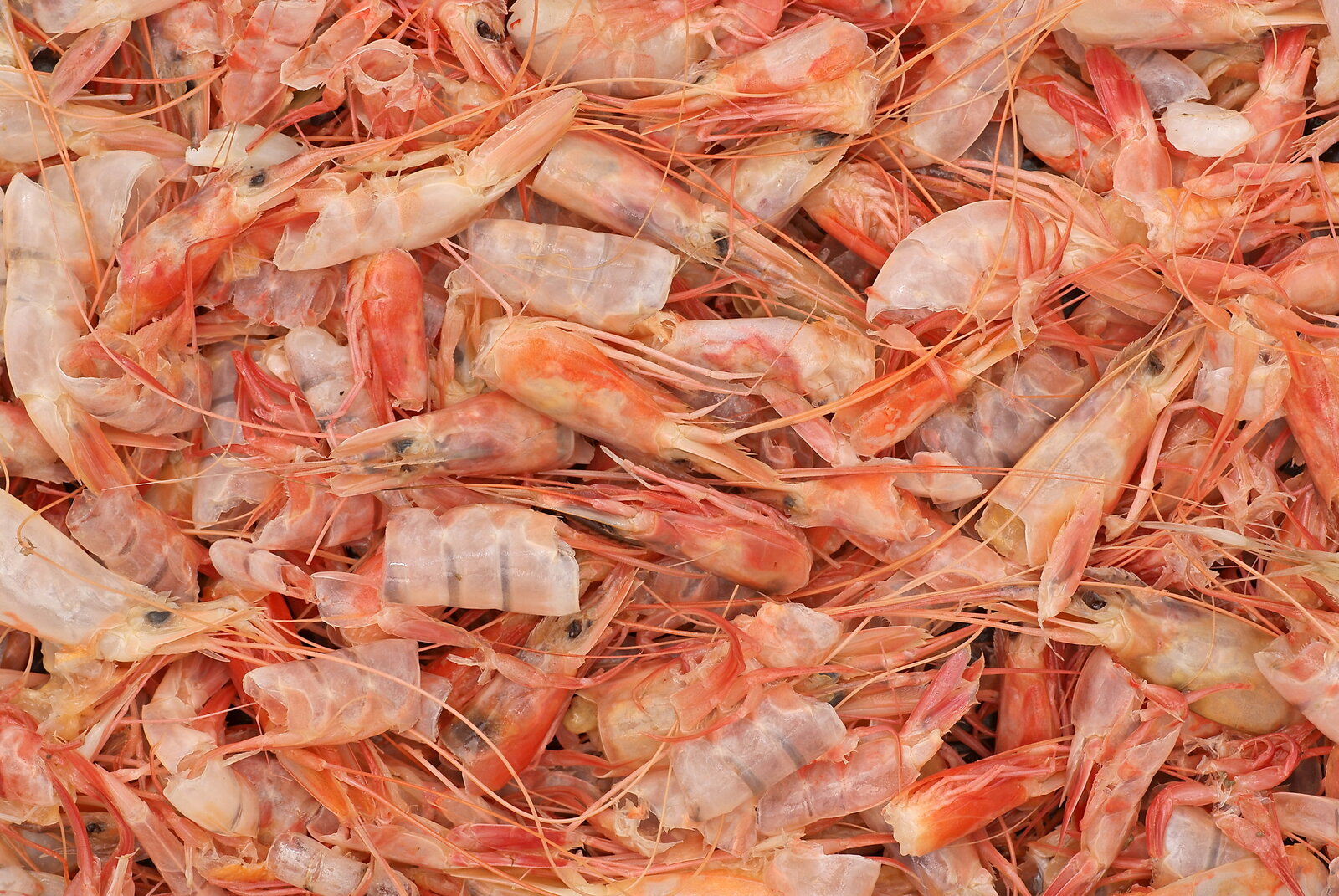
A New York-based fashion startup has created biodegradable leather from shrimp shells, Bloomberg reports. TômTex, the two-year-old startup pioneering the technology, also uses mushroom waste, coffee grounds, and other biomaterials with the dual aim of using biodegradable materials for garments and upcycling marine waste. TômTex also makes pleather (plastic fabric that looks like leather), suede, latex and vinyl, among other things, to make a compostable material, according to its website. Its product, which is on the verge of being commercially-ready, has been showcased by luxury fashion houses earlier this month.
How does it work? Shellfish leather is made by combining a biochemical called chitosan extracted from shrimp shells with water and organic acid, along with a combination of biomaterials and pigments, then putting it into a heater to remove excess water. The leather-like fully biodegradable fabric that emerges from the ovens lacks cow leather’s distinct smell, but feels and looks pretty much the same, according to the company. The process produces slightly less emissions than synthetic leather and less than 15% of emissions produced from cow-skin leather production. Chitosan is already used in wastewater treatment, food supplements and medicine.
Sustainable fashion is finding a niche, even if it’s not fully scalable yet: Sustainable fashion startups are turning to plant-based alternatives to combat the use of fossil fuel-based products, with some using algae-based materials and others using materials like mushrooms, hemp, wood residue, and even spoiled milk, Bloomberg reports. However, products like the ones produced by TômTex are priced similar to conventional leather, making them more expensive than cheaper synthetic, fossil fuel-based alternatives.
CALENDAR
MARCH 2023
7-9 March (Tuesday-Thursday): Middle East Energy Exhibition, Dubai, UAE.
8-9 March (Wednesday-Thursday): Earthna Summit, Doha, Qatar.
14-16 March (Tuesday-Thursday): Arab Aviation Summit (AAS), Al Hamra International Exhibition & Conference Centre, Ras al Khaimah, UAE.
15-19 March (Wednesday-Sunday): Qatar International Agricultural and Environmental Exhibition, Doha, Qatar.
22-24 March (Wednesday-Friday): K.ey – The Energy Transition Expo, Rimini Expo Centre, Emilia-Romagna, Italy.
22-24 March (Wednesday-Friday): UN 2023 Water Conference, New York, NY, United States.
APRIL 2023
6 April (Thursday): Arabia CSR Awards 2022 Clinic (online).
MAY 2023
1-4 May (Monday-Thursday): Arabian Travel Market, Dubai, UAE.
2-7 May (Tuesday-Sunday): Salon International de l’Agriculture au Maroc (SIAM), Meknes, Morocco.
16-18 May (Tuesday-Thursday): Seatrade Maritime Logistics Middle East, Dubai, UAE.
29-31 May (Monday-Wednesday): Electric Vehicle Innovation Summit, Abu Dhabi, UAE.
JUNE 2023
1-3 June (Thursday-Saturday): Envirotec and Energie Expo, Tunis, Tunisia.
13-14 June (Tuesday- Wednesday) The Arab Green Summit, Dubai, UAE.
13-14 June (Tuesday- Wednesday) Bloomberg New Economy Gateway Africa Conference, Marrakesh, Morocco.
SEPTEMBER 2023
Chariot Limited and Total Eren’s feasibility study on a 10 GW green hydrogen plant in Mauritania to be completed.
OCTOBER 2023
2-4 October (Monday-Wednesday): WETEX and Dubai Solar Show, Dubai, UAE.
4 October (Wednesday): Arabia CSR Gala Awarding Ceremony, UAE.
31 October – 2 November (Tuesday-Thursday): World Hydropower Conference, Bali, Indonesia.
NOVEMBER 2023
30 November – 12 December: Conference of the Parties (COP 28), Dubai, UAE.
EVENTS WITH NO SET DATE
End-2022
KSA’s Neom wants to tender three concrete water reservoir projects to up its water storage capacity by 6 mn liters.
2023
Early 2023: Egypt’s KarmSolar to launch KarmCharge, the company’s EV charging venture.
1Q2023: Oman will award two blocks of land for green hydrogen projects in Duqm, Oman.
Mid-2023: Sale of Sembcorp Energy India Limited to consortium of Omani investors to close.
Phase C of the 900-MW of the Mohammed bin Rashid Al Maktoum Solar Park in Dubai to be completed.
Saudi Basic Industries Corporation (Sabic) steam cracker furnace powered by renewable energy to come online.
4Q2023: Oman to award four blocks of land for green hydrogen projects in Thumrait, Oman.
2024
End-2024: Emirati Masdar’s 500 MW wind farm in Uzbekistan to begin commercial operations.
QatarEnergy’s industrial cities solar power project will start electricity production.
First 1.5 GW phase of Morocco’s Xlinks solar and wind energy project to be operational.
2025
Second 1.5 GW phase of Morocco’s Xlinks solar and wind energy project to be operational.
UAE to have over 1k EV charging stations installed.
2026
1Q 2026: QatarEnergy’s USD 1 bn blue ammonia plant to be completed.
End-2026: HSBC Bahrain to eliminate single-use PVC plastic cards.
Iraq’s Mass Group Holding wants to invest EUR 1 bn on its thermal plant Mintia in Romania to have 62% of run on renewable energy, while expanding its energy capacity to at least 1.29k MWh.
2027
MENA’s district cooling market is expected to reach USD 15 bn.
2030
UAE’s Abu Dhabi Commercial Bank (ADCB) wants to provide AED 35 bn in green financing.
UAE targets 14 GW in clean energy capacity.
Tunisia targets 30% of renewables in its energy mix.
Qatar wants to generate USD 17 bn from its circular economy, creating 9k-19k jobs.
Morocco’s Xlinks solar and wind energy project to generate 10.5 GW of energy.
2035
Qatar to capture up to 11 mn tons of CO2 annually.
2045
Qatar’s Public Works Authority’s (Ashghal) USD 1.5 bn sewage treatment facility to reach 600k cm/d capacity.
2060
Nigeria aims to achieve its net-zero emissions target.
Enterprise Climate is available without charge thanks to the generous support of HSBC (tax ID: 204-901-715), the leading corporate and retail lender in Egypt; and Infinity Power (tax ID: 305-170-682), the leading generator and distributor of renewable energy in Africa and the Middle East. Enterprise Climate is delivered Mon-Thurs before 4 am UAE time. Were you forwarded this copy? Sign up for your own delivery at climate.enterprise.press. Contact us on climate@enterprisemea.com.
